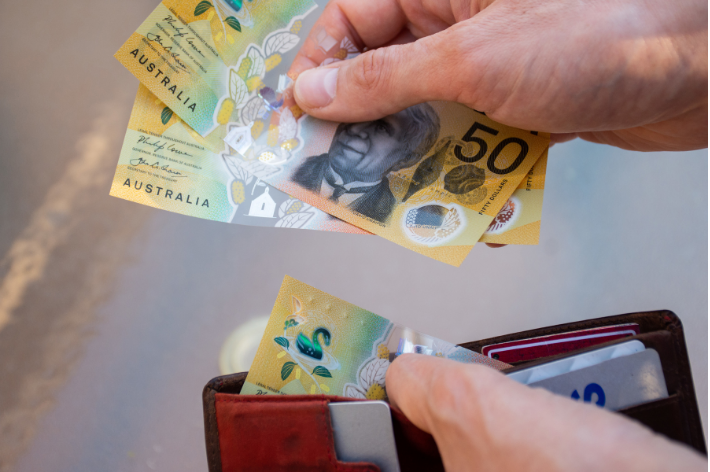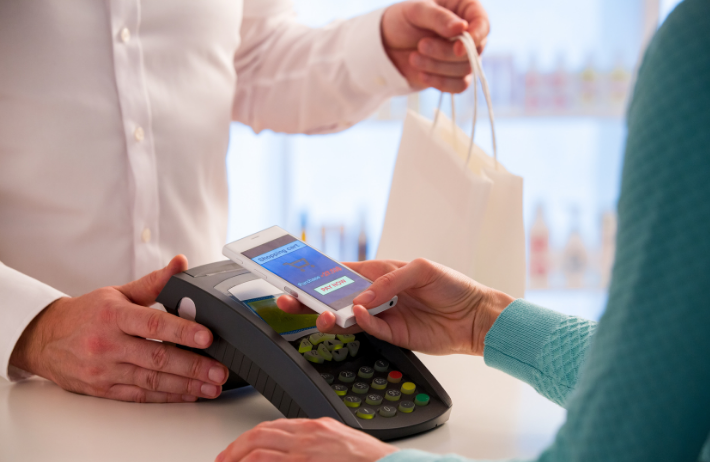News
News

Vii and The Card Network (TCN) launch first-to-market eftpos digital gift card solution
Indue is excited to work with Vii and The Card Network (TCN) to launch our first-to-market eftpos digital gift card solution available through Apple Pay and Google Pay.
Our digital gift card technology supports growing customer demand for highly convenient, secure and flexible mobile payment experiences, reflected in the $6 billion value of the national gift card market in 2023.
Indue Chief Executive Officer Derek Weatherley said that digital gift cards offer benefits to both merchants and consumers, and enhances the digital gifting experience.
“We are thrilled to launch our eftpos digital gift card solution, which was first to the Australian market and will allow our clients to provide tailored, personable gifting experiences for their customers,” Mr Weatherley said.
“Digital gift cards enable online and instore purchases, are more secure and support environmental sustainability by eliminating plastic production and delivery.
“As highly customisable digital products that can be issued instantly, digital gift cards are a popular payment solution – both for givers and receivers of the card, as well as merchants who can access sophisticated back-end analytics to improve user experience and distribution.
Indue’s solution is driven via an issuer managed app, which facilitates the issuance of cards to TCN and Vii and allows them to maintain settings for the card and add it directly to an OEM wallet.
Our capability enables us to provide holistic support to card issuers in progressing their digital gift card products through Apple Pay and Google Pay, and we work with our client’s app developers to deliver a tailored solution.
Find out more about how we can help you today with our range of programs.

Study pinpoints two key areas that banks can improve on
Australian banks are not delivering appropriate omnichannel customer service and struggle to keep up with changing approaches to customer loyalty, according to new research.
The study, conducted by software company Pegasystems and research group Omnipoll, found that poor omnichannel customer service results in more than half (54 per cent) of all customer interactions having at least one issue.
Customers’ top challenges included being forced to call or visit a branch after failing to complete an action online (36 per cent), waiting longer than expected for service in a branch or on the phone (28 per cent) and being transferred from one agent to another (25 per cent).
On the positive side, the study found signs of improved customer service from Australia’s banks over the past two years. The industry had an 86 per cent customer satisfaction average across Australia. This is more than energy/utilities providers (74 per cent), telecommunications (78 per cent) and general insurance (80 per cent).
According to the survey of 1,221 Australians aged over 18, banking customers say the number one driver of satisfaction is easy interaction with their bank.
It found that “digital” customers – those that travel cashless, regularly use online banking and prefer to pay with their phone – are the most satisfied with their banks and more likely to recommend them to other people, but they are also the least loyal.
Indeed, 49 per cent of “digitals” have considered switching banks in the past six months, compared to 36 per cent of “traditional”, the most loyal group, who are also the least satisfied and least likely to recommend their bank.
The researchers attribute this lack of satisfaction among “traditionals” to poor omnichannel service through the pandemic, particularly with branches closing.
The traditional segment – mainly comprising customers over 50 years old – also rated their banks poorly on proactively helping them with money management. Despite this, traditionals still show the most loyalty and longevity, with six in 10 traditionals having been with their bank for more than 15 years.
The researchers attribute the growing lack of loyalty in the digital segment to multiple reasons. Firstly, only 32 per cent of all customers feel their bank is good at rewarding loyalty, while only 38 per cent feel they are given the best possible prices or rates.
Digital customers are also much more likely to have products across multiple banks, which significantly reduces switching challenges. Therefore, if digital customers are unhappy with their current provider, switching is a much simpler process than it would be for traditional customers.
“While banks are doing well to achieve high customer satisfaction, there is work to be done in delivering seamless omnichannel customer journeys and providing proactive customer service,” says Jonathan Tanner, senior director, industry principal financial services and insurance APAC, at Pegasystems.
“Given the level of first-party data banks have on their customers, there are plenty of opportunities to enhance customer relationships and improve customer journeys by providing more personalised service.”
Tanner adds: “Traditionals, in particular, are looking for more personalised, proactive service. As banks continue to close branches, they will need to support traditional customers in transitioning to digital banking to ensure they don’t feel left behind.”
“As this research shows, loyalty is no longer an accurate indicator of customer satisfaction, especially for digital customers who are more often on the lookout for better deals and service and more willing to change providers. This means customer relationships and seamless customer journeys will be pivotal to banking providers’ long-term success.”
Article Source: rfigroup.com

A proliferation of payment options has reduced our reliance on cash.
A proliferation of payment options has reduced our reliance on cash.
The million dollar question is: are we ever going back? A proliferation of digital payment methods and the Covid-19 pandemic has prompted a radical change in the way consumers use and keep cash in the past year.
According to research by the Australian Competition and Consumer Commission (ACCC), for the year ending June 2020, the number of cash withdrawals dropped by 19 per cent to 625.6 million compared to the prior year. This follows declines that have been occurring since 2013, with ATM withdrawals dropping by 30 per cent in the past five years.
There are more than 27,000 ATMs in Australia, which performed more than 423 million transactions in the year ending October 2020. Reserve Bank of Australia figures reveal we collectively withdrew $110.3 billion.
It might sound substantial, but the fact is that cash withdrawals from ATMs have been in decline since 2012, leading to the Big 4 banks to reduce the number of ATMs across the country.
The displacement of cash as a method of payment has been occurring ever since the first payment was made by a card back in the 1974. Today cash usage is down across all age, household income and transaction size categories.
1974. Today cash usage is down across all age, household income and transaction size categories.
Analysis by the Reserve Bank of Australia (RBA) shows that the amassing of $50 and $100 notes reached ‘unprecedented’ levels during Covid-19 lockdowns last year. This occurred at the same time as cash being used much less for everyday transactions, with suggestions early on that the virus could live on bank notes for many days.
Much of the recent fall has been due to the impact of Covid-19, with the number of cash withdrawals between April to June 2020 falling 46.7 per cent to 98.3 million from 184.6 million over the same period in 2019.
Right now, there are about $90 billion notes on issue, and $4 billion coins circulating in the economy. But the cost to the economy of using cash is a function of the cost of producing notes and coins, the amount of cash in circulation, and how often it is used.
The reasons for using cash differs significantly between low and high users. For low cash users, merchants’ lack of card acceptance drives them to use cash; whereas heavy cash users find it helps them to budget to use cash – because you can only use what you carry.
A big driver here towards cards in favour of cash, of course, is the acceleration of online shopping post-pandemic, which in turn has had major ramifications on banking infrastructure.
Ultimately, this helps to make the digital wallet ecosystem more attractive to merchants and the shift to cashless more likely to be permanent.

Stay COVID-safe with contactless giving | Indue Digital Gift Card
Stay COVID-safe with Contactless Giving
Contactless payment methods have never been more important. The ‘tap-and-pay’ approach to purchasing everyday essentials has well and truly become the norm, with the global pandemic forcing us to rethink our daily movements, including how we choose to pay.
The Rise of Contactless Payments
The rise of contactless payments can be seen right across the sector, made even more accessible following the temporary increase of PIN limits for contactless payments from $100 to $200 to reduce the need for physical contact with payment terminals, a move led by the Australian Payments Network (AusPayNet)[1].
This sentiment can also be translated to the gift card space. What has traditionally been a somewhat ‘hands-on’ process — from purchasing in-store to the act of giving itself — gift cards are now turning completely digital and Indue are the first in Australia to utilise the Visa network to make this happen.
It’s a move that’s in line with shifts in consumer behaviour. A 2019 survey by Roy Morgan of more than 50,000 consumers revealed 72 per cent of Australians are embracing digital payment solutions and mobile payment wallets in lieu of more traditional physical payment methods while shopping[2], and this has only been amplified as we tackle the global pandemic.
New Contactless Gift Card
Indue Chief Commercial Officer Dave Hemingway said Indue’s new contactless digital gift card offering further embeds the business’ payment expertise in the retail sector, setting a new benchmark in retail technology.
“Consumers expect fast, convenient and secure payments, and Indue is proud to redefine the boundaries to create an exciting, new product that we’re certain will benefit retailers and consumers across the country, even more so from a COVID-safe perspective,” Dave said.
“Building on our 20-year partnership with Visa, together we’ve created an entirely new product allowing major retailers to utilise a digital gift card that is universally accepted without requiring point-of-sale integration, paving the way for future advancements in this sector.”
With the widespread impacts of COVID-19 affecting several industries across the country, technology will play a key role in helping businesses bounce back. There has never been a more crucial time for retailers in particular to consider digital gift cards as a way to secure a solid consumer base and boost sales through a convenient, safe and seamless purchase journey.
In this increasingly contactless environment, the rise of innovative, digital solutions that not only streamline gift giving and receiving, but protect our overall health, will no doubt become a necessity as we continue to navigate the ‘new normal’.
Find out more about Indue’s innovative gift card offering here, or contact us today.
References
[1] https://www.auspaynet.com.au/insights/Media-Release/ContactlessLimitsCOVID-19
[2] https://www.finder.com.au/australians-digital-payments-roy-morgan-survey#:~:text=A%20new%20survey%20from%20Roy,Zip%20and%20mobile%20payment%20wallets.&text=Bill%20payment%20services%20were%20the,in%20the%20past%2012%20months.

Digital gift card convenience | A new way to give
A new digital way to give
Contactless convenience is the ultimate win for consumers when it comes to Indue’s new digital gift card offering.
Innovation in the Australian Gift Card Market
The Australian gift card market is valued at up to $2.5 billion annually[1], making it the most popular gift given in Australia. Market research has shown that while gift givers would prefer to gift something physical to convey thought and meaning, recipients generally prefer to receive digital gift cards for the convenience factor. Indue has tapped into this sentiment, creating a multi-merchant digital gift card solution, providing multiple options for the recipient to choose where they spend.
Just six months in the making in partnership with Visa, the Indue digital gift card provides the same level of security and convenience customers know and trust when they tap-and-pay on their mobile phone or wearable device. Lost or forgotten cards are a thing of the past with a balance displayed in real time, enabling recipients to check their balance on the go and removing the need to attempt multiple transactions to spend the remaining value.
Digital Gift Card Convenience
Consumers want the convenience they’ve come to expect from using their smart device for transactions, so it’s only natural that digital gift cards provide a better customer experience overall.
The digital gift card also offers added flexibility when it comes to purchasing them online, particularly around peak holiday periods.
“Digital gift cards extend the buying window at the busiest times of the year, in particular the lead up to Christmas,” said Indue Chief Commercial Officer, Dave Hemingway.
“When people are buying plastic gift cards online, that stops at around 19 December because purchasers are concerned they won’t arrive in time. Consumers now have the ability to buy a digital gift card online on Christmas Eve, with an almost instant digital delivery to the recipient.”
Find out more about Indue’s innovative gift card offering here, or contact us today.
References
[1] https://treasury.gov.au/publication/gift-cards-in-the-australian-market-report-2/gift-cards-in-the-australian-market-report/part-ii-the-australian-gift-card-market

New digital gift card a win for retailers
Indue’s new digital gift card a win for retailers
Indue, in partnership with Visa, is transforming the gift card experience for Australian retailers and consumers with its innovative new offer.
A convenient, contactless payment option
Paving the way for future advancements in the sector, the new digital gift card allows major retailers to offer a digital gift card that is universally accepted, without requiring point-of-sale integration.
In addition to offering a convenient, contactless payment option for consumers, the product also provides the ability to capture consumer data to generate targeted engagement. Recipients of the digital gift card are required to download the retailer’s app in order to provision their digital gift card into Apple Pay or Google Pay, creating an opportunity to gather purchasing metrics, serve up additional offers to consumers and link in to the broader shopping experience.
Enhancing Consumer Engagement
“There’s no ability to connect with a consumer when they use a plastic gift card — it’s an anonymous transaction. Our digital gift card technology, which integrates seamlessly with retailers’ existing apps, encourages tighter engagement,” said Indue Chief Commercial Officer, Dave Hemingway.
“Our mission is to ensure the millions of Australians who access their money through our clients’ companies have access to market-leading payment products, and we’re thrilled to have delivered once again with our digital gift card.”
Operating costs for retailers who offer digital gift cards are also lower, removing the need to pay for manufacturing and distribution. Expiry dates for many gift cards need to be printed on the card at the time of manufacture, which could result in stock issues if the cards are unable to be sold within a set period, whereas Indue’s digital gift cards generate an expiry date at the point of purchase.
Importantly, Indue’s digital gift card is flexible in its deployment, providing both B2C and B2B distribution solutions.
“Digital gift cards don’t necessarily need to be distributed via e-commerce. For example, we’ve had enquiries around digital gift cards to distribute to staff as part of a loyalty program, so there are a range of different distribution models that we can harness,” Dave said.
Find out more about Indue’s innovative gift card offering here, or contact us today.

